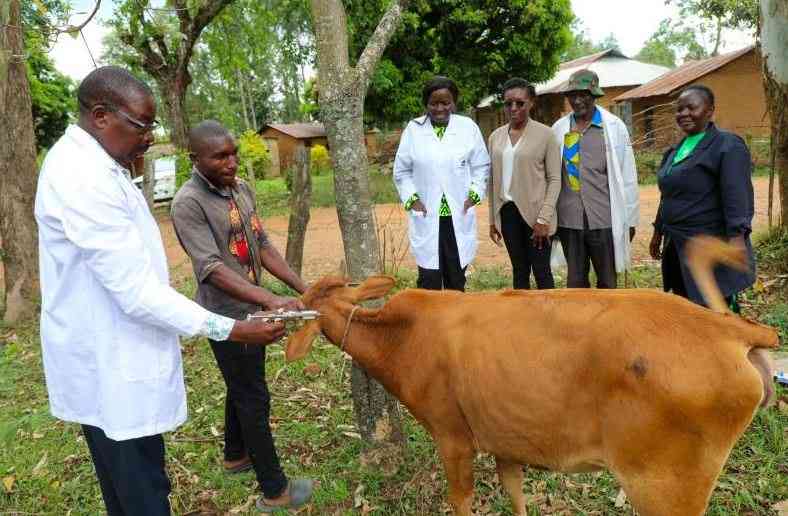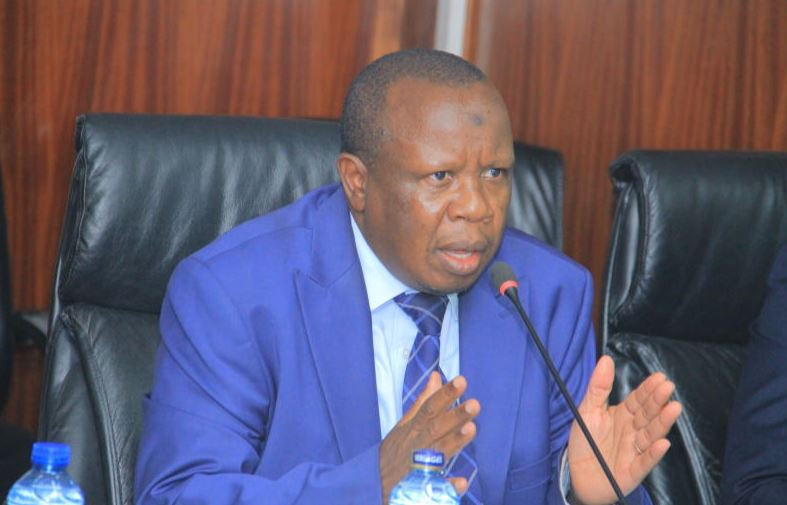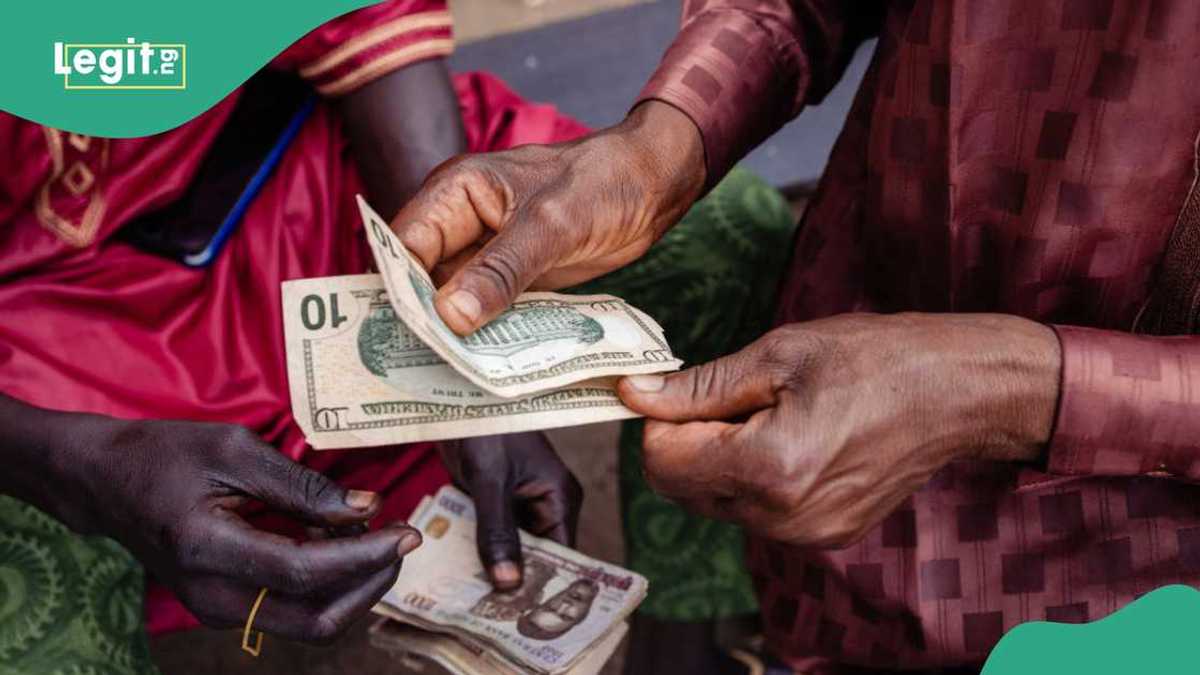Personal statements written by members of the Central Bank of Nigeria’s (CBN) Monetary Policy Committee (MPC) at their meeting in February, indicate that the committee will not be in a hurry to start easing monetary policy despite the slowdown in the country’s inflation, writes
In his address at the 2025 Monetary Policy Forum held on January 30, Governor of the Central Bank of Nigeria (CBN), Mr. Olayemi Cardoso, had announced that but for the apex bank’s orthodox monetary policy approach, headline inflation would have reached 42.81 percent in December 2024 compared with the 34.80 percent that was reported for the month by the National Bureau of Statistics (NBS).
He stated that the 42.81 per cent headline inflation projected for December was the CBN’s counterfactual estimate which did not happen because the apex bank maintained its tight monetary policy stance, raising the benchmark interest rateMonetary Policy Rate (MPR) by 875 basis points to 27.5 per cent in 2024.
However, with the NBS releasing rebased Consumer Price Index (CPI) data, which showed that headline inflation fell sharply to 24.48 per cent in January this year, from December 2024’s 34.80 per cent, just about twenty four hours before the MPC held its first meeting of the year, analysts were uncertain about whether the committee will hold or cut interest rates especially as some central banks on the continent had begun to pause their tightening cycle.
As it turned out, the MPC voted unanimously to not only leave the MPR unchanged at 27.50 per cent, but also to retain the other key parameters such as the asymmetric corridor, the Cash Reserve Ratio (CRR) and the liquidity ratio.
In the communiqué issued at the end of the meeting, which was signed by its Chairman, Cardoso, the MPC said that while inflation was showing early signs of easing, it was “too early to start considering rate cuts.”
The communiqué also said that the decision to maintain rates was driven by “recent macroeconomic indicators that suggest improved market stability”, particularly in the foreign exchange market and inflation trends.
It stated: “The Committee noted that core inflation remains a concern, even as recent data indicates a slowing trajectory. Food prices continue to exert upward pressure, and thus, premature monetary easing could reverse recent gains.”
However, most analysts looked forward to the release of the personal statements of MPC members who were at the meeting, given that these were likely to shed more light on why members of the committee voted to leave rates unchanged.
Indeed, the statements, which were published by the CBN last week, show the MPC members harping on the need for the apex bank to be cautious in easing monetary policy tightening as inflationary pressures are still high.
For instance, in his personal statement, Aloysius Ordu, said: “Nigeria commenced 2025 on a brighter note than 2024. But we are not out of the woods yet.
The lesson from global experience is that one of the worst mistakes we can make is to tolerate sustained and rising inflation. Indeed, the necessary condition for maximum sustainable economic growth is stable prices.
“As such, I continue to see a persuasive case for the MPC to stick to its script, for now, and keep interest rates on hold. This is the first time to do so in the past seven meetings.
We will closely monitor developments in the period ahead and make decisions as appropriate based on the available data. I therefore voted to hold the MPR, the CRR, liquidity ratio, and the asymmetric corridor at their cur rent rates.”
Also in his personal statement, Bandele Amoo stated: “I am glad to note that the Nigerian economy witnessed several positive macroeconomic developments in recent times across different sectors.
Some of which include: sectorwide drop in general prices, especially food; stability in the foreign exchange market resulting in reduced speculative activities, and continued appreciation of the naira against the US dollar; declining FX premium between NFEM and BDC recently; gradual moderation in the price of Premium Motor Spirit (PMS); planned recapitalisation of the Bank of Agriculture; increase in social safety programmes to further boost aggregate demand to reduce the manufacturers’ outcry of unsold stock of goods; growth in the capital market (ASI and equity portfolios); improved payment system infrastructure as well as improved coordination between the fiscal and monetary policy authorities.
“Given the aforementioned, it is my fervent believe that the MPC must continue to contain demand-side pressures and manage the second-round effect from supply shocks.
I also submit that it is appropriate to maintain a tight monetary policy stance until a significant and sustained decline in inflation is achieved. Working with the MPC team, the duration and extent of policy restrictiveness will be monitored, and it must be outlook dependent and data driven.
The CBN is justified to want to sustain its inflation fight, it must also look for a way of bringing relief to MSMEs which are negatively impacted by high interest rates
When this happens, the country would have a more entrenched import substitution policy strategy, boosting the industrial sector as a vibrant engine of growth and net employer of labour.”
Similarly, in her statement, the Permanent Secretary of the Federal Ministry of Finance, Mrs. Lydia Jafiya, who is also a member of the MPC, said: “The February 2025 Monetary Policy Committee (MPC) meeting held against the backdrop of declining inflation, exchange rate appreciation, increase in real Gross Domestic Product, and strong external sector position.
“The improvement in economic performance could be linked to the policy alignment between the fiscal and monetary authorities towards disinflation, accelerated growth and stable exchange rate.
“It is noteworthy that in the last one year, the committee has remained focused on the Bank’s mandate of achieving price stability conducive to inclusive growth, by consistently pursuing a restrictive monetary policy to rein in inflation.
Following a precise and well calibrated monetary policy, the trajectory of economic growth was sustained, and longer-term inflation expectations anchored.
“The observed decline in Broad Money Supply is thus, in line with the tightening policy of the central bank. While I am optimistic of the sustainability of the current downward trend in inflation following the rebasing exercise, supported by declining prices of food and energy commodities; lingering geopolitical uncertainties and global economic fragmentations could trigger new supply chain disruptions and these portend risks to domestic price development.”
She further stated: “I have had a firm belief that monetary and structural factors are the leading drivers of current headline inflation.
I am convinced that with ongoing fiscal support to tame structural constraints in the real sector, price development will further moderate in the medium term as output improves.
“As such, the fiscal authority remains committed to seeking new ways of addressing the current supply-side challenges confronting the economy, to complement what the monetary authority is doing on the demand-side.
“There is no gainsay that there has been a remarkable improvement in oil production and agricultural output on account of new investments in the oil and gas industry, coupled with improved security in the Niger Delta and food producing belts of the nation.
Indeed, the government has embarked on aggressive investment in critical infrastructure to support growth leading sectors, including addressing security challenges.
“In recent months, we have seen a lot of inflows and investor appetite on account of the relative stability of the naira and our current positive real interest rate offers a risk premium for investors.
But beyond external financing, and given the nationalistic tendencies around the globe, I share in the view that there is need to adopt an inward-looking growth and development strategy, leveraging our wealth of physical and human resources, including creating an adequate environment for private sector investment in sectors that create jobs and boost productivity, as well as in critical infrastructure through public private partnership to develop the economy.
“Considering these developments and the ongoing recovery of domestic economic indicators, I do not see the need for further policy tightening at this meeting.
I believe that a hold is more appropriate to calm financial conditions and improve investment and output.”
Interestingly, a recent report by Unity Bank noted that weak consumer demand, occasioned by price pressures was negatively impacting retailers and traders.
The report stated: “Nigeria’s inflation rate eased to 23.18 per cent in February 2025, down from 24.48 per cent in January, marking the second consecutive month of decline, according to the National Bureau of Statistics (NBS).
This slowdown was largely driven by a drop in food price inflation, which fell from 26.08 per cent to 23.51 per cent, alongside a seven per cent decrease in petrol prices to N860/liter.
Urban inflation declined to 25.15 per cent from 26.09 per cent, while rural inflation saw a sharper drop from 22.86 per cent to 21.10 per cent.
“Despite this moderation, price pressures remain high and real household incomes continue to be strained, keeping consumer demand weak and businesses under pressure.
For small business owners and traders, the persistent economic challenges continue to limit growth and profitability.
Please follow and like us:










